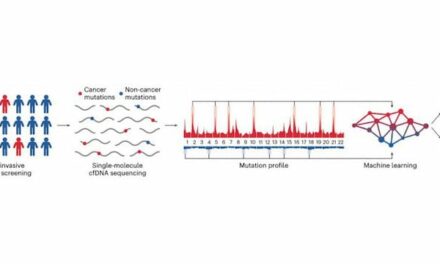Roche, Basel, Switzerland, has received FDA approval for the Cobas human papilloma virus (HPV) test to be used as the first-line screening test for cervical cancer among women aged 25 and older, using cervical specimens collected in SurePath preservative fluid, a collection medium commonly used for Pap tests.
The Roche test is now the only HPV test approved for use as a primary screening test with both SurePath and ThinPrep PreservCyt solution, the two types of liquid media used to collect samples for the vast majority of Pap or HPV tests in the United States.
The Cobas HPV test is now approved for all of the cervical cancer screening indications supported by professional society guidelines—primary screening in women aged 25 and older, reflex (follow-up) testing of unclear Pap test results in women aged 21 and older, and cotesting with a Pap test for women aged 30 and older—with both of the primary collection media types.
“Before today, laboratories did not have an FDA-approved HPV test available that could cover all of the HPV screening options supported in professional guidelines and be used with both of the primary Pap test collection media,” says Ann Costello, head of Roche tissue diagnostics. “With this additional approval for the Cobas HPV test, laboratories and clinicians now have an approved option that can be used for all of their HPV screening indications and sample types, so they can more easily provide the most appropriate options for their patients.”
Introduced in 2011, the Cobas HPV test helps healthcare providers identify women at risk for cervical cancer by individually identifying the presence of the DNA of HPV genotypes 16 and 18—the two genotypes responsible for about 70% of all cervical cancer—and reporting the 12 other high-risk HPV types as a combined result, all in one test and from one patient sample. In 2014, the Cobas HPV tests received the first FDA approval to use an HPV test for primary cervical cancer screening without an accompanying Pap test.
Clinically validated by the landmark Athena study, the Cobas HPV test is approved in the United States for use with the Cobas 4800 system, which offers walkaway automation of nucleic acid purification, polymerase chain reaction (PCR) set-up, and real-time PCR amplification and detection.1
For more information, visit Roche.
Reference
- Wright TC Jr, Stoler MH, Behrens CM, et al. The Athena human papilloma virus study: design, methods, and baseline results. Am J Obstet Gynecol. 2012;206(1):46.e1–46.e11; doi: 10.1016/j.ajog.2011.07.024.
Featured image: High-risk strains of human papilloma virus (HPV) are the known cause of almost all cervical cancers. Screening for HPV DNA can identify women at risk, to help prevent disease.







